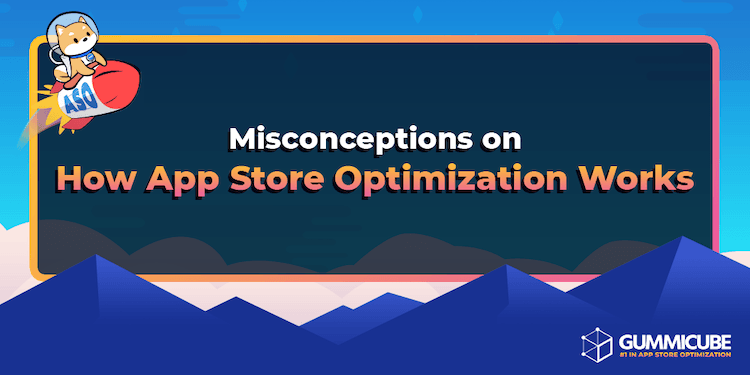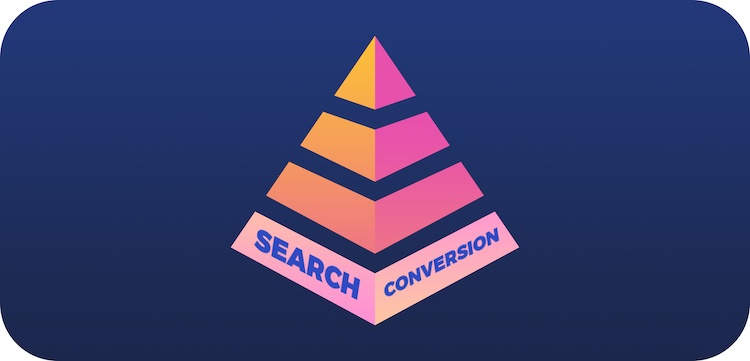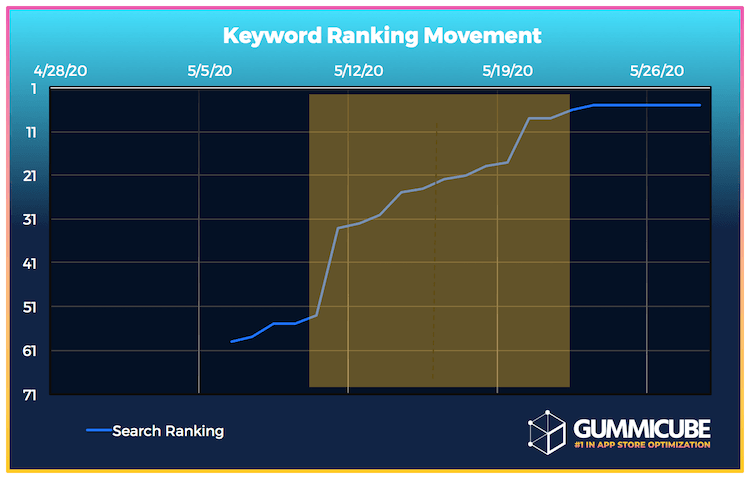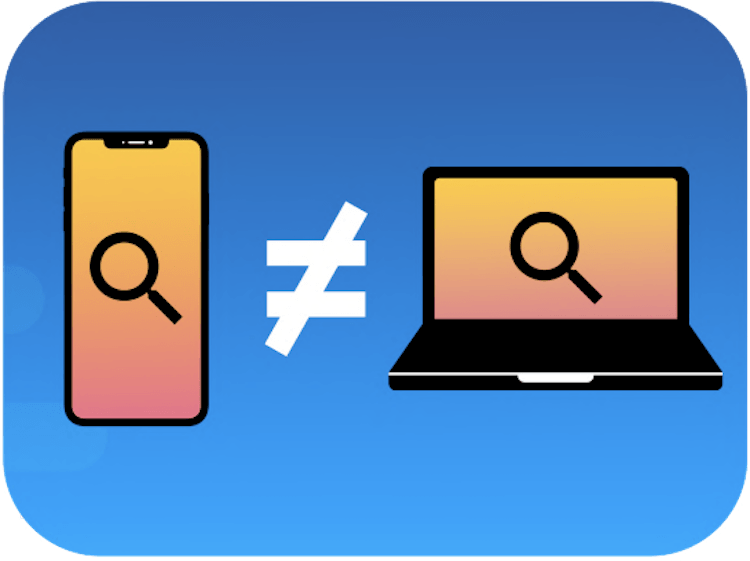How much do you really know about App Store Optimization? The truth is you might only have a piece of the whole puzzle.
Many easily available articles will describe ASO as “ranking for keywords.” Others will emphasize “updating icons.” The truth is, it’s those things and much more.
Even then, common misconceptions around the hows and whys of executing these ASO strategies can end up being detrimental to growth.
To avoid these pitfalls, we’ll go over several misconceptions around ASO and explain the reality behind them. Understanding how to avoid them can help avert disaster.
Misconception 1: Search Optimization is Less Powerful Than Conversion and Creative Optimization
Is any single part of the App Store Optimization funnel more or less powerful than others?
Different changes will have different impacts on an app, but to call one more important may leave the other neglected. A common misconception is that search optimization has less of an impact or payoff than conversion optimization.
If an app can not be found, how can it convert users? The same concept holds true even if the app is discoverable. If there are opportunities to increase visibility, those must be assessed and acted upon. Optimizing for visibility and conversion go hand-in-hand to reach, and acquire, the most users.
This may be harder to see at a glance due to the time and scale keyword optimization requires. However, discounting it will only be detrimental in the long term. In reality, search optimization is just as necessary as conversion optimization and creative optimization. Both search and creative optimization should be used as the foundational concepts of all mobile marketing campaigns.
Why Search Optimization Matters
This misconception exists largely because creative changes are more instantly gratifying. A change is made, conversion can be assessed and a winner can be determined.
For search optimization, changing one or two keywords at a time will not make an immediate or noticeable difference. This may lead developers and marketers to believe it does not have an impact on their KPIs.
Your playbook for the new app ecosystem [webinar]
The app stores have been cracked open. Savvy teams are already capitalizing by implementing App2Web and Web2App strategies. Join Paddle’s Lucas Lovell to discover smarter billing tactics.
Register nowSearch optimization, and the indexation process, takes time and patience. This does not make it any less valuable. Developers need to understand that consistently targeting, tracking and updating keywords will have a big impact on an app in the long term.
Search is about making changes that ripple out to influence hundreds of terms at a time. It is a longer process, but the more data you give the stores, the more relevancy you build for all of your visible keywords.
On average, it takes 3-4 weeks to index for keywords, but consistently updating after the indexation cycle can eventually help an app rank in top positions for a multitude of keywords.
Updating too soon can undo any ongoing indexation efforts, while waiting too long can let rankings stagnate as competitors continue to grow.
Making changes during the indexing process can take away long-term advantages.
Use the Right Data
It is also possible that a developer can use inaccurate data for their search optimization, which would lead them to assume it simply doesn’t work.
For search optimization to be successful, it must be based on data directly from mobile searches. Developers using other data will spend their time, energy and marketing budget chasing keywords that do them no good.
Why Web Data Doesn’t Work
Using web search data, like the kind used for Search Engine Optimization, will not provide accurate keyword volume.
This is due to the fact that there is only a 20% overlap between web search and mobile search data. Users search differently on each platform, so the keywords will naturally be different.
Search Ads Does Not Track Trends
You might be thinking: “What about Search Ads? That data comes directly from the App Store, surely it must be helpful for ASO.” That is another misconception that has led developers to failed optimizations.
Apple Search Ads data provides day-to-day keyword volumes without regard for overall trends. Using this data will lock an app into keywords with fleeting search volume rather than optimizing with the big picture in mind.
Sustainable, consistent high search volume is vital to success. The flash-in-the-pan popularity metrics Apple Search Ads provides does not convey this. Using Search Ads data will not let you know if your keywords will still have volume over the next day, week or month. It’s simply unsustainable.
Misconception 2: Apple and Google Provide Impressions Per Keyword Data
There are tools that claim they can tell you impressions and downloads per keyword, but this is not possible. There is no API or source of information that can provide this data.
What they actually do is quite different. Developers deceived by these claims are given a false view of their app and its impressions that can steer them entirely off-course.
What Really Happens
Rather than gain the exact impressions and downloads per keyword, the supposed impressions data is actually an estimate based on several variables.
First, the tool looks at the keywords you’re targeting and tracking. It then takes its understanding of the volume for these keywords – which can be flawed if it’s not using the right data – and looks at where your app ranks for them.
Each term is assigned a numerical value based on where the app ranks for it and the keyword volume, creating an estimate of impressions per keyword.
This is based on assumptions and potentially flawed data, rather than drawing information from the stores themselves. To suggest otherwise is deceptive and can set developers entirely off-course.
What We Can See
The Google Play Developer Console can provide basic data about which keywords are sending you traffic. Comparing the estimated impressions per keyword to the data from the Developer Console shows that the estimates only match up around 10 percent of the time.
This means that the estimates are flawed and cannot be relied upon for accurate optimization. They can create false insights that do not benefit anyone.
Misconception 3: App Store Optimization is the Same as Media Buying
Paid campaigns can certainly benefit your app marketing, but running an Apple Search Ads campaign is not the same as managing App Store Optimization.
To say that Search Ads drives ASO is misleading and has the two essentially reversed; Search Ads campaigns work best when built on a foundation of App Store Optimization.
If you’re running a Search Ads campaign for high-volume and high-traffic keywords but aren’t getting positive results, it could be due to a lack of App Store Optimization. Your competitors who are properly optimized will see much better returns from their paid campaigns.
Again, the search and conversion optimization strategies implemented should be the foundation of your other mobile marketing strategies.
ASO and Paid Campaigns
True App Store Optimization drives the success of paid campaigns. Using ASO to build relevancy and data within the App Store lets the store algorithms understand what your app should index for.
Measuring organic performance accurately and understanding conversion will give you a guide as to how to structure your paid campaigns- be it call to action text, targeted Search Ads keywords or banner assets. Without it, you’ll be flying blind.
Building relevance through ASO can even lower the cost per install of Search Ads. A winning bid may be lower if the app has high relevance to the term it’s bidding on. If you’re not building relevancy, you’re spending more on every ad.
The Symbiotic Relationship of ASO and Search Ads
Although Search Ads can influence organic rankings, an ASA campaign won’t be successful if your app isn’t properly optimized.
You need your keywords to have enough volume and relevancy for the Search Ads campaign to run successfully. This can not and will not happen without App Store Optimization.
Search Ads campaigns can accelerate indexation speed, provide additional clicks and build brand recognition. That is all beneficial to App Store Optimization, but it is not a substitute for a holistic approach to ASO.
Overall
The first step to running a proper App Store Optimization campaign is to fully understand what ASO is. This involves clearing up common misunderstandings and ensuring your strategy is not misguided.
Successful app marketing is built upon App Store Optimization, including search and conversion optimization, accurate data and paid campaigns that supplement organic growth. With these misconceptions debunked, you can confidently begin your ASO journey.














